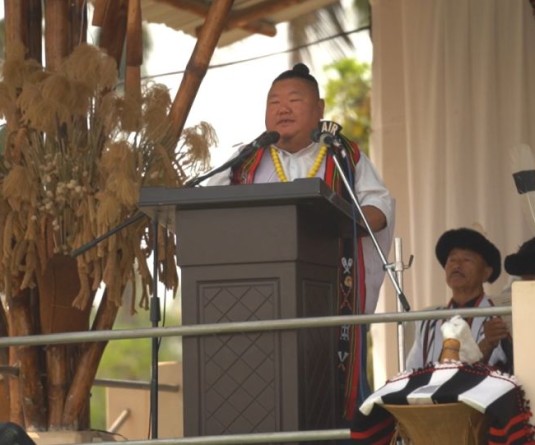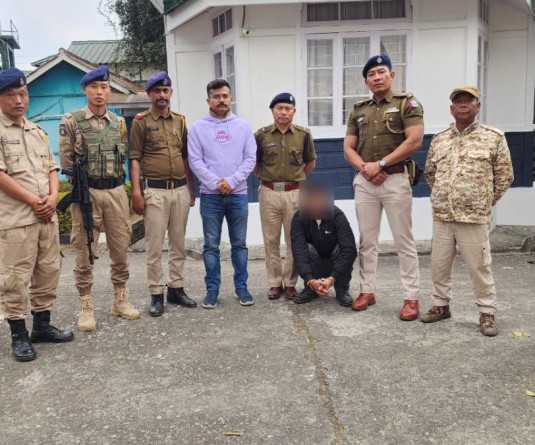
Chizokho Vero
Kohima | July 7
The Naga youths’ ability to speak fluent English is assumed as an advantage for them to serve outside the state and elsewhere. This is evident as a large number of Naga youths are engaging themselves in various private firms today in different parts of the country and even abroad. In one way, the development can be attributed to declaration of the past years as “Year of Youth Empowerment” or “Capacity Building” and so on by the state government where many educated unemployed youths got opportunity to upgrade their skills by attending trainings and got job-placements with various firms.
Nagaland’s literacy rate now stands at 67. 11 %. English is the official language of Nagaland, which is accepted by all sections of the people of Nagaland. “The youth of Nagaland are also gradually catching up with the process of globalization and liberalization,” Chief Minister Neiphiu Rio was quoted as saying in an official programme in Kohima. Rio asserted that a number of Naga youths are finding gainful employment, not only in the metropolitan cities of India but even abroad. A good number of English-speaking people in Nagaland are also another advantage for the state to flourish in the tourism industry. There is no denying fact that tourists are comfortable in communicating with the people here.
An interesting statement to be noted in the analysis of the NCERT [3] syllabus in comparison with the state: “Nagaland is little more advanced when compared to the one given in the National Curriculum Framework – 2005, ‘as the pupils have already had two years of learning the said language (English) before coming to level 1.” In educational institutions in Nagaland, both private and government schools use English language as the medium of instruction.
Even in remote areas of the state, programmes are conducted in English where majority of the people can understand even if they cannot speak the language fluently. Almost all the schools here use English language compulsorily for communication within the school premises. This has resulted in enhancing the English-speaking ability among school children.
MLA Dr. Nicky Kire encouraged students to learn at least one new word of English per day so in a year they learnt 365 words. Today, some kids can speak English even better than their parents. In many Naga families, English is the common means of conversation, thereby encouraging children to adopt the habit of speaking English.
In Nagaland, English Language Teaching Institute under the State Council of Educational Research & Training (SCERT) was introduced in partnership with the English and Foreign Language University Hyderabad and the Language Division of the Ministry of Human Resources Development, Government of India to provide quality training on the teaching of English specially at the secondary level for both pre-primary and primary in service teachers.
ELTI was made functional from the year 2009 and the institute has successfully trained 14 in-service primary teachers and 26 pre-service private candidates during the first batch of the 6 months certificate course in English Language teaching. The ELTI has further organized 10-days orientation programmes in teaching of English for secondary school teachers. A total of 106 in-service teachers have been trained in Dimapur and Pfutsero.
From 2010 onwards, the ELTI will also be introducing a 9-month diploma course on teaching of English for secondary teachers. With a view to raise the level of English language teaching in the state, the Nagaland government signed a MoU on December 15, 2009 with the British Council of Kolkata. Under the MoU an International English Language Testing Systems centre in the state would be set up. The government has entrusted on the SCERT the responsibility of implementing the scheme.






